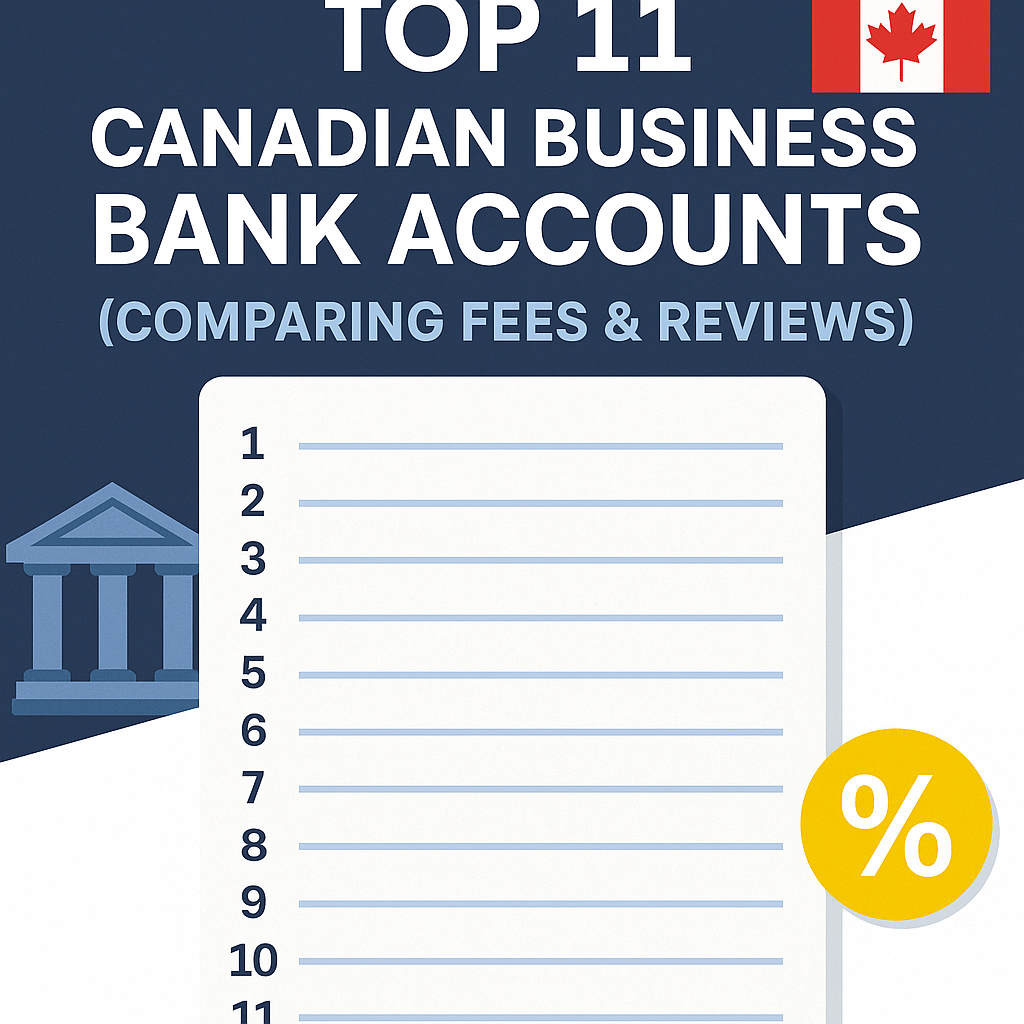GOOGLE ADS MANAGEMENT
ALL SERVICES- GRAPHIC DESIGN & BRANDING
➥ WEBSITE DESIGN TORONTO
➥ TORONTO LOGO DESIGN
➥ BROCHURE GRAPHIC DESIGN
➥ INFOGRAPHIC DESIGN
➥ BUSINESS CARD DESIGN
➥ PACKAGE DESIGN TORONTO
➥ ILLUSTRATION DESIGN
➥ ADVERTISING POSTER DESIGN
➥ BRANDING STRATEGY & SERVICES- ➤ VIEW ALL SERVICES
WEB DEVELOPMENT & SUPPORT
➥ CUSTOM WEB DESIGN TORONTO
➥ ECOMMERCE WEBSITE DESIGN TORONTO
➥ WEBSITE MAINTENANCE SERVICES
➥ SHOPIFY WEBSITE DESIGN
➥ SHOPIFY EXPERTS TORONTO
➥ WORDPRESS DEVELOPMENT
➥ WORDPRESS MAINTENANCE- ➤ VIEW ALL SERVICES
WEBSITE MARKETING & CONTENT
➥ SEO PACKAGES TORONTO
➥ TORONTO SOCIAL MEDIA AGENCY
➥ CONTENT MARKETING TORONTO
➥ PPC MANAGEMENT TORONTO
➥ AFFILIATE MARKETING CANADA
➥ STRATEGIC CONSULTATION- ➤ VIEW ALL SERVICES
ABOUT
RESOURCES- LET’S CHAT
Questions? Call us at
647-348-4995

GOOGLE ADS MANAGEMENT
ALL SERVICES- GRAPHIC DESIGN & BRANDING
➥ WEBSITE DESIGN TORONTO
➥ TORONTO LOGO DESIGN
➥ BROCHURE GRAPHIC DESIGN
➥ INFOGRAPHIC DESIGN
➥ BUSINESS CARD DESIGN
➥ PACKAGE DESIGN TORONTO
➥ ILLUSTRATION DESIGN
➥ ADVERTISING POSTER DESIGN
➥ BRANDING STRATEGY & SERVICES- ➤ VIEW ALL SERVICES
WEB DEVELOPMENT & SUPPORT
➥ CUSTOM WEB DESIGN TORONTO
➥ ECOMMERCE WEBSITE DESIGN TORONTO
➥ WEBSITE MAINTENANCE SERVICES
➥ SHOPIFY WEBSITE DESIGN
➥ SHOPIFY EXPERTS TORONTO
➥ WORDPRESS DEVELOPMENT
➥ WORDPRESS MAINTENANCE- ➤ VIEW ALL SERVICES
WEBSITE MARKETING & CONTENT
➥ SEO PACKAGES TORONTO
➥ TORONTO SOCIAL MEDIA AGENCY
➥ CONTENT MARKETING TORONTO
➥ PPC MANAGEMENT TORONTO
➥ AFFILIATE MARKETING CANADA
➥ STRATEGIC CONSULTATION- ➤ VIEW ALL SERVICES
ABOUT
RESOURCES- LET’S CHAT
Questions? Call us at
647-348-4995

GOOGLE ADS MANAGEMENT
ALL SERVICES- GRAPHIC DESIGN & BRANDING
➥ WEBSITE DESIGN TORONTO
➥ TORONTO LOGO DESIGN
➥ BROCHURE GRAPHIC DESIGN
➥ INFOGRAPHIC DESIGN
➥ BUSINESS CARD DESIGN
➥ PACKAGE DESIGN TORONTO
➥ ILLUSTRATION DESIGN
➥ ADVERTISING POSTER DESIGN
➥ BRANDING STRATEGY & SERVICES- ➤ VIEW ALL SERVICES
WEB DEVELOPMENT & SUPPORT
➥ CUSTOM WEB DESIGN TORONTO
➥ ECOMMERCE WEBSITE DESIGN TORONTO
➥ WEBSITE MAINTENANCE SERVICES
➥ SHOPIFY WEBSITE DESIGN
➥ SHOPIFY EXPERTS TORONTO
➥ WORDPRESS DEVELOPMENT
➥ WORDPRESS MAINTENANCE- ➤ VIEW ALL SERVICES
WEBSITE MARKETING & CONTENT
➥ SEO PACKAGES TORONTO
➥ TORONTO SOCIAL MEDIA AGENCY
➥ CONTENT MARKETING TORONTO
➥ PPC MANAGEMENT TORONTO
➥ AFFILIATE MARKETING CANADA
➥ STRATEGIC CONSULTATION- ➤ VIEW ALL SERVICES
ABOUT
RESOURCES- LET’S CHAT
Questions? Call us at
647-348-4995

GOOGLE ADS MANAGEMENT
ALL SERVICES- GRAPHIC DESIGN & BRANDING
➥ WEBSITE DESIGN TORONTO
➥ TORONTO LOGO DESIGN
➥ BROCHURE GRAPHIC DESIGN
➥ INFOGRAPHIC DESIGN
➥ BUSINESS CARD DESIGN
➥ PACKAGE DESIGN TORONTO
➥ ILLUSTRATION DESIGN
➥ ADVERTISING POSTER DESIGN
➥ BRANDING STRATEGY & SERVICES- ➤ VIEW ALL SERVICES
WEB DEVELOPMENT & SUPPORT
➥ CUSTOM WEB DESIGN TORONTO
➥ ECOMMERCE WEBSITE DESIGN TORONTO
➥ WEBSITE MAINTENANCE SERVICES
➥ SHOPIFY WEBSITE DESIGN
➥ SHOPIFY EXPERTS TORONTO
➥ WORDPRESS DEVELOPMENT
➥ WORDPRESS MAINTENANCE- ➤ VIEW ALL SERVICES
WEBSITE MARKETING & CONTENT
➥ SEO PACKAGES TORONTO
➥ TORONTO SOCIAL MEDIA AGENCY
➥ CONTENT MARKETING TORONTO
➥ PPC MANAGEMENT TORONTO
➥ AFFILIATE MARKETING CANADA
➥ STRATEGIC CONSULTATION- ➤ VIEW ALL SERVICES
ABOUT
RESOURCES- LET’S CHAT
Questions? Call us at
647-348-4995
![]()
![]()
![]()

- April 14, 2020
-
 Sarah Bauder
Sarah Bauder
The COVID-19 crisis will undoubtedly be considered the defining moment of the modern age. Around the globe, countries are contending with the myriad of repercussions of this crisis. Here in Ontario, the provincial government has extended the state of emergency and mandated the closure of non-essential workplaces. However, the pandemic will dissipate and we will gradually return to normalcy. In order to truly flourish, educational institutions should consider things such as school website design and marketing services. In this article, we discuss 4 tips for schools, colleges, and universities to thrive in a post Coronavirus landscape.
Educational Institutions Must Consider Content Creation Services To Thrive In Toronto
To truly thrive in a post Coronavirus landscape, private schools, colleges and universities must consider proven content creation to increase brand awareness and thrive. That’s why it’s important to choose the best content marketing agency Toronto services.
With exceptional and relevant content creation and marketing, you will reach your target audience, boost your institution’s brand awareness, and ultimately convert student enrolment. Whether it’s a brochure design, infographic design, or other forms of content like a TTC ad, content marketing is a proven strategic marketing technique that will give you the edge in this highly competitive industry.
Social Media Management Will Be Essential For Schools In Toronto
Although we are in the throes of the COVID-19 crisis, the pandemic will inevitably dissipate. Once the pandemic subsides, it will be essential for schools, colleges, and universities in the city to use effective social media management Toronto services.
Private schools, colleges, and universities should understand how crucial building your intuition’s brand is for success in the future. Effective social media management and marketing will increase your school’s social media presence, build brand awareness online, engage your target audience, and attract new students, enabling your institution to thrive in a post Coronavirus landscape.

Educational Institutions Must Think About SEO Strategies To Thrive In Toronto
When the Coronavirus crisis ends and we return to normalcy, educational institutions must think about utilizing effective professional SEO services. In a post Coronavirus, the industry will be crowded with competition, all vying for new students. Educational institutions will want to use the proven power of effective SEO strategies, which will drive organic traffic to your school’s website, and maximize your ROI.
Effective tactics such as optimizing your institution’s website for SEO, keyword research, and utilizing and optimizing Google My Business are all essential components that will maximize your school, college, or university’s growth and success in a post Coronavirus landscape.
How The COVID-19 Economic Response Plan Pertains To Schools, Colleges, And Universities
These most unprecedented of times are a wholly fluid situation, which change daily from region to region. The Ontario government extended the timeframe for the state of emergency, in addition to the mandated closure of all non-essential workplaces. On March 31, one of the world’s preeminent post-secondary institutions, University of Toronto, released a message regarding the Coronavirus pandemic:
“To our students, and to all members of our U of T community:
The COVID-19 pandemic has created a shift in all our lives but your ability to adapt to and evolve with these unexpected challenges has brought to light your strength, ingenuity and resilience.
In response to the advice of public health officials and government travel advisories, we want to update you on steps the University is taking to support students, faculty, librarians and staff as we plan for the summer.
Support for Faculty, Librarians & Staff:
We want to acknowledge and recognize the outstanding work and dedication of our faculty, librarians, and staff in responding to the COVID-19 pandemic and in supporting our students.
Things have been changing quickly, often daily, but you can read about our plans for the month at the HR and Equity website. There you will find information about continuing University supports for employees.
As always, for the most up-to-date information, please visit U of T’s COVID-19 update page and the COVID-19 FAQ for students and take time to review the frequently asked questions. If you have questions that are not addressed, use the Contact Us button at the top of the FAQ section to submit your question.
Thank you for working with us as we navigate this situation together. U of T students, faculty, librarians and staff have a reputation for brilliance, innovation and resilience, and every day you are proving that to be true.”
Given the restrictions placed on what is deemed an essential and non-essential workplace, there will be inevitable loss of income. That’s why it is crucial to understand the relief measures outlined in the COVID-19 Economic Response Plan. Amongst the measures providing economic support to Canadians affected by the pandemic is the Canada Emergency Response Benefit (CERB):
“The federal government will provide a taxable benefit of $2,000 a month for up to 4 months to:
- workers who must stop working due to COVID19 and do not have access to paid leave or other income support.
- workers who are sick, quarantined, or taking care of someone who is sick with COVID-19.
- working parents who must stay home without pay to care for children that are sick or need additional care because of school and daycare closures.
- workers who still have their employment but are not being paid because there is currently not sufficient work and their employer has asked them not to come to work.
- wage earners and self-employed individuals, including contract workers, who would not otherwise be eligible for Employment Insurance.”
In addition, in the beginning of April the federal government announced the details of measures that will support Canadian businesses affected by the COVID-19 outbreak. On April 1, the Department of Finance announced the Canadian Emergency Wage Subsidy (CEWS):
“The Government of Canada is taking immediate, significant and decisive action to support Canadians and businesses facing hardship as a result of the global COVID-19 outbreak.
To help Canadians and businesses get through these tough economic times, the Prime Minister, Justin Trudeau, announced that the Government is proposing to introduce a wage subsidy of 75 per cent for qualifying businesses, for up to 3 months, retroactive to March 15, 2020.
This measure, which is a part of the Government of Canada’s COVID-19 Economic Response Plan, would support businesses that are hardest hit by the COVID-19 pandemic and would help protect the jobs Canadians depend on during these difficult times.
- The Canada Emergency Wage Subsidy would apply at a rate of 75 per cent of the first $58,700 normally earned by employees – representing a benefit of up to $847 per week. The program would be in place for a 12-week period, from March 15 to June 6, 2020.
- Eligible employers who suffer a drop in gross revenues of at least 30 per cent in March, April or May, when compared to the same month in 2019, would be able to access the subsidy.
- Eligible employers would include employers of all sizes and across all sectors of the economy, with the exception of public sector entities.
- For non-profit organizations and registered charities similarly affected by a loss of revenue, the government will continue to work with the sector to ensure the definition of revenue is appropriate to their circumstances. The government is also considering additional support for non-profits and charities, particularly those involved in the front line response to COVID-19. Further details will be announced in the near term.
- An eligible employer’s entitlement to this wage subsidy will be based entirely on the salary or wages actually paid to employees. All employers would be expected to at least make best efforts to top up salaries to 100% of the maximum wages covered.”
Federal finance minister, Bill Morneau, explained the impetus for the introduction of the Canadian Emergency Wage Subsidy (CEWS).
“Businesses provide the jobs, the goods and the services that Canadians depend on to keep their communities going, in good times and bad. With the Canada Emergency Wage Subsidy, we are helping businesses keep their staff on payroll so that businesses will be better positioned to rebound when the current challenges have passed. We will continue to do whatever it takes to ensure that workers and businesses are supported through the outbreak, and that our economy remains resilient during these difficult times,” Morneau explained in a press release.
As we are in the midst of the global COVID-19 pandemic, it might be difficult to see a light at the end of the proverbial tunnel. Yet, this crisis will inevitably come to an end, and we will collectively prevail. In the interim, stay safe, stay well, stay connected to family, friends, and neighbours, and remember to be kind.

Sarah Bauder is a senior content specialist at Little Dragon Media. Sarah has a degree in journalism and has a decade of experience writing content at numerous renowned publications. She enjoys writing about digital marketing, business, entrepreneurship and more.
RECENT POSTS
- Bank Smarter, Not Harder: How Venn Puts All Your Finances in One Place
- Top 11 Canadian Business Bank Accounts (Comparing Fees & Reviews)
- PolicyMe – Legit Canadian Insurance Policy? Let’s Review…
- 10 Small Business Loans & Financing Options in Ontario
- Top 8 Small Business Insurance Providers in Canada (2025)

Ready to chat about how Little Dragon Media can enhance your business?
Call us now at 647-348-4995 or

OUR AWARDS & CERTIFICATIONS






WHAT OUR CLIENTS ARE SAYING



Little Dragon Media's professionalism and commitment to delivering excellence are truly commendable. I highly recommend their services... Thank you for your stellar work!
- Delna Bharucha

Little Dragon Media worked on developing our logo and website. They did an absolutely AMAZING job on both projects. These guys ROCK and you won't be disappointed.
- Sonia Nutt

My team had a great experience working with Little Dragon Media. We will certainly engage with Little Dragon Media for any additional projects in the future. Highly recommend!
- Carly Rooney



- 682A St-Clair West Toronto, ON M6C 1B1
- (647)-348-4995
- info@littledragon.ca
MOST POPULAR SERVICES
RECENT POSTS
GET MORE CLIENTS
Don't let your competitors take over. We'll help you climb to the top and get more clients.



- 682A St-Clair West Toronto, ON M6C1B1
- (647)-348-4995
- info@littledragon.ca
MOST POPULAR SERVICES
RECENT POSTS
GET MORE CLIENTS
Don't let your competitors take over. We'll help you climb to the top and get more clients.

Contact | Press Mentions | Privacy Policy | Terms of Service
© 2024 Little Dragon Media. All Rights Reserved.





